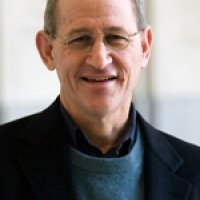New Beginning or Just Showdown Postponed?: A Look at the Renewed Talks with Iran over its Nuclear Program
Wilson Center Public Policy Scholar Michael Adler has just returned from Istanbul where he was covering the P5+1 nuclear talks with Iran, restarting the process of negotiations. He also made a side trip to Israel.
On April 24, the Middle East Program hosted the discussion “New Beginning or Just Showdown Postponed?: A Look at the Renewed Talks with Iran over its Nuclear Program” with Adler, who is a former Vienna-based correspondent for Agence France-Presse news agency. Haleh Esfandiari, Director of the Middle East Program at the Wilson Center, moderated the event.
Adler began with stating that nuclear negotiations with Iran have been a long process without much progress and rife with setbacks. Overall, he believes the situation looks “hopeful” as, before March, there was unprecedented talk of war that is now waning. He gave an overview of this process going back to the beginning of the crisis in 2002 with the revelation of two previously secret sites in Iran where two processes were allegedly underway for producing a nuclear weapon. In September 2009, another secret site was revealed in Fordow, this one with the added dimension of being located under a mountain. Then Iran met with the P5+1 countries composed of the five permanent member of the UN Security Council and Germany. They agreed to a fuel swap, what Adler referred to as the “magic compromise,” a formula that would have restored confidence and reassured the West had it transpired.
Adler then briefly explained the uranium enrichment process. Enriching uranium is an exponential process, and when Iran began enriching to 20 percent this set off warning signs as this would increase Iran’s ability to make a nuclear weapon. In February 2010, Iran launched a missile capable of carrying a satellite, also a step toward achieving ballistic missile capability. In May 2010, Turkey and Brazil tried to salvage the fuel swap agreement, but their attempts failed. This was followed by UN Security Council Resolution 1929 in June of that year which included targeted financial sanctions, asset freezing, and prohibitions on Iran buying heavy weapons. Adler noted that Iran is now enriching much closer to weapons grade and escalation continues.
Adler then reviewed the events leading up to Istanbul. In Geneva in December 2010, the P5+1 met to discuss all options and laid the ground for future talks to begin de-escalation. Iran’s response was to make talks contingent on lifting sanctions. The P5+1 did not accept this. Sanctions have now grown into the crippling economic measures of today. Adler noted the talks in Istanbul were an effort to start talking again, with no goal of reaching an agreement just yet. Iran's chief nuclear negotiator Saeed Jalili insisted on what Adler called face-saving measures, among them that talk of war must stop and Iran needs a deal it can sell to its people to say they won. Jalili’s talks with Catherine Ashton, the EU’s foreign affairs chief, were described by Adler as businesslike and productive. This meeting then laid the ground for the next round of talks in Baghdad on May 23. There is already a sense, according to Adler, that talk of war has diminished.
As for reactions, Adler says a senior US official told him they don’t care how they get to an agreement, they just want to get to one. A sticking point will be having Iran suspend uranium enrichment, even if this is only for a short time. Israeli reactions Adler gathered from his visit there indicated skepticism that Iran is working towards an agreement, believing, rather, that Iran is stalling once again. Adler noted that there will be pressure for a deal in Baghdad because the risks are high. Iran wants sanctions lifted, but the U.S. will not lift them without confidence-building measures by Iran, particularly for work to stop at Fordow and the ceasing of uranium enrichment to 20 percent.
In sum, Adler sees a renewed willingness to talk going into Baghdad in May. Though an agreement is a longshot, an increase in sanctions and threat of war outweigh the risk of not reaching one.
By Mona Youssef, Middle East Program
Speaker

Former Correspondent in Vienna for Agence France-Presse News Agency
Hosted By

Middle East Program
The Wilson Center’s Middle East Program serves as a crucial resource for the policymaking community and beyond, providing analyses and research that helps inform US foreign policymaking, stimulates public debate, and expands knowledge about issues in the wider Middle East and North Africa (MENA) region. Read more


Global Europe Program
The Global Europe Program is focused on Europe’s capabilities, and how it engages on critical global issues. We investigate European approaches to critical global issues. We examine Europe’s relations with Russia and Eurasia, China and the Indo-Pacific, the Middle East and Africa. Our initiatives include “Ukraine in Europe”—an examination of what it will take to make Ukraine’s European future a reality. But we also examine the role of NATO, the European Union and the OSCE, Europe’s energy security, transatlantic trade disputes, and challenges to democracy. The Global Europe Program’s staff, scholars-in-residence, and Global Fellows participate in seminars, policy study groups, and international conferences to provide analytical recommendations to policy makers and the media. Read more
